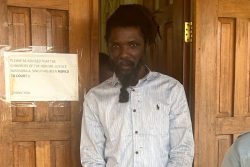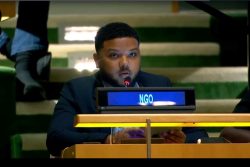“It will consist of more convicted criminals, recent border-crossers, egregious immigration law violators and immigration fugitives than ever before.” Last year, US Immigration & Customs Enforcement also deported a record number of people with more than 195 000 of them being convicted criminals, totalling more than 50 per cent of the deportees, Napolitano said. Asked to comment about how this would affect Barbados, police public relations officer Inspector David Welch stated: “We rarely receive any notice when people are being deported from the US, even though we request information from them. So far, we have no knowledge as to how many persons are being sent back – most of the time, we do not know until the person arrives here and we are informed by Immigration.”
However, he said some of the criminal deportees would have committed crimes such as theft, robbery or drug offences.
He also pointed out that Barbados usually received in the region of 13 to 20 deportees annually, but confessed that he did not know if that number had increased.
Rebecca Ross, counsellor for public affairs at the US Embassy, was also not in a position to say how many deportees would be coming back to the Caribbean.
However, in 2007, the embassy said some Eastern Caribbean countries were using delaying tactics when it came to receiving deportees. In a diplomatic cable released by WikiLeaks, officials here reported the problems to Washington, stating: “In recent weeks, we have become aware of a string of cases in which prospective deportees from Eastern Caribbean (EC) countries have been unable to return to their country of citizenship because of delays from their US-based consulates in processing required travel documents.








